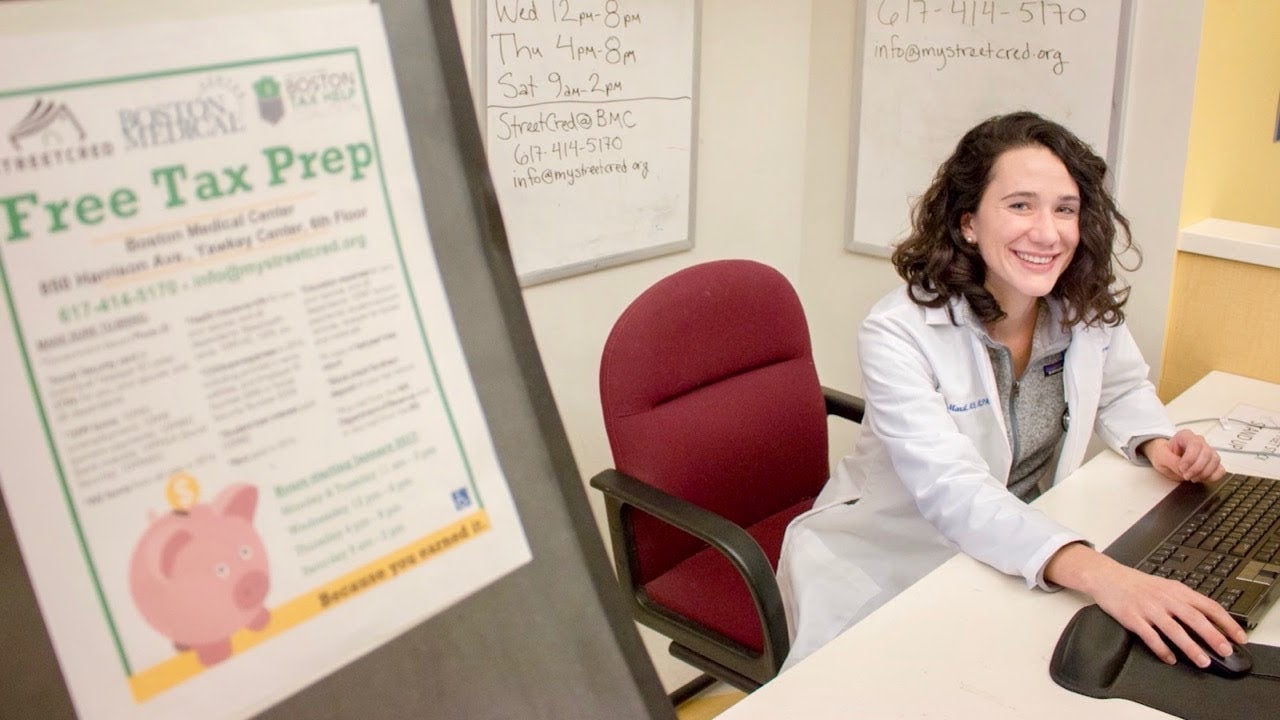US doctors are offering free tax preparation for low-income families right in the waiting room
Dr. Lucy Marcil wants to remind you that in the US, tomorrow (April 17) is the deadline for filing your taxes.


Dr. Lucy Marcil wants to remind you that in the US, tomorrow (April 17) is the deadline for filing your taxes.
The Boston-based pediatrician branched out to accounting after learning that a large fraction of her low-income patients were losing thousands of dollars because they didn’t file the tax-season paperwork to receive money they were eligible to collect from the government.
At a TED conference last week, Marcil a introduced a novel solution called “StreetCred,” a program she and fellow Boston Medical Center resident Michael Hole established starting with the 2016 tax cycle, when a cadre of volunteer tax preparers began offering free tax preparation right in doctors’ waiting rooms. In its first two years, StreetCred helped 750 families in Boston get back $1.6 million in earned income credits. This year, they’ve served 1,200 families so far across four states.
The link between poverty and physical health seems obvious, but the effects on kids are accute: “Poor children are 1.5 times more likely to die and twice as likely to be hospitalized compared to their middle-class counterparts,” Marcil explains. A 2016 report from the American Academy of Pediatrics outlines the litany of ill effects including low birth weight, infant mortality, slower language development, chronic illness, poor nutrition, injury, and truncated brain development. The problem is particularly grave in the US. Data from the 2014 census indicate that 43% of American kids “live in households designated as ‘poor, near poor, or low income.”
The earned income tax credit (EITC) program, Marcil argues, is the US government’s most effective poverty-alleviation instrument, offering $66 billion in annual tax benefits. Initiated under president Gerald Ford’s administration in 1975, the EITC program today enables married couples who earn a maximum $54,884 to file a “negative tax return” and receive a refund check up to $6,431, depending on the number of children they have. The extra funds means being able to afford healthier food options, better medical services, or just extra money for simple pleasures, says Marcil. She tells Quartz that her first client was a fast-food worker who used the windfall to buy “luxuries” for her grandson such as a new winter coat and fresh fruits.

“Doctors in every city could be doing this,” says Marcil, who was named a TED Fellow this year. Any clinic can register to be a tax preparation center and anyone from medical students to retirees can volunteer to help after passing an IRS exam, she notes. “It’s not as hard as it sounds, I promise. I certainly never thought I’d be doing other people’s taxes, but here I am.”
Marcil says they’re also carefully exploring how to leverage tax data to help families easily apply for other social services such as job-training programs, financial coaching, or childcare services—all with the goal of helping families rise out of poverty. “We know that tax credits do improve health but it’s not the solution [to ending poverty] because there are other problems linked to financial instability,” she explains.